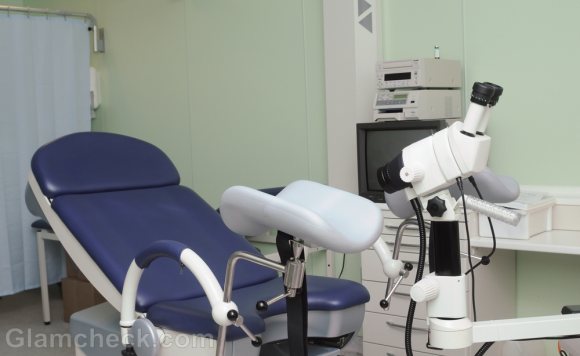Knowing about abortion and abortion methods is all well and good, but it does not help you understand the entire abortion procedure and what the whole experience will entail. Abortion is a scary idea for many women, and most will come to the decision after some pretty pain-staking soul-searching. Women also have to deal with the social stigma attached to abortion which exists even in the most developed countries. The very idea of finding a doctor or family planning clinic to do an abortion or worrying about the consultation visit, the actual abortion and having to look someone in the eye and speak to them about the abortion can be a daunting task for many women. Knowing about the abortion procedure can help give you a general idea of what you can expect at every stage thus, hopefully, minimizing the anxiety at this trying time.
Abortion Procedure Steps
 Doing your Research
Doing your Research
Nothing beats a face-to-face consultation with a doctor who can give you all the information you need about abortion methods and the abortion procedure. But if you are hesitating at taking that step, you can start by doing some research on abortion and the different abortion methods available so that you at least have some information about the subject. Perhaps in the course of your research you may uncover some abortion facts that you had gotten wrong which were causing you worry; this in turn may help to alleviate some of the anxiety and hesitation you are experiencing so that you have the confidence to move on to the next step.
Finding A Family Planning Clinic
There are several ways to go about finding a qualified doctor to perform the abortion. You have to be comfortable with the doctor or family planning clinic that you choose for the abortion so that you can ask all the questions you want, get them answered to your satisfaction, and feel taken care of. Here are some ways in which to find that.
- If you are comfortable, ask your regular family doctor to recommend a doctor who performs abortions or to refer a family planning clinic that is reputed. Doctors usually know other doctors who are good at their jobs so you can at least be sure that if you trust your doctor, he or she will send you to someone you can trust.
- Ask your gynecologist if you have one. Some gynecologist perform abortions themselves. So you might get lucky right there.
- But not all women want to broadcast their abortion plans to their family doctors or get their abortion done by a doctor they know. That is understandable and not a problem at all. Most family planning clinics are advertised in the yellow pages. Most of them have websites nowadays so you can even find their info online. You can give these places a call and if the receptionist or doctor who answers your call makes you feel comfortable then you can go ahead and fix an appointment for a consultation at least. You can also drive by the clinic to check it out. If you don’t like what you see, you can cancel the appointment.
- Other women are a treasure-house of information. Your best friend may have heard of someone who had an abortion at a reliable clinic. She may never have shared this with you before, but stuff like that tends to stick in the memory banks. So if you are telling one of your girlfriends about your decision to have an abortion, ask her if she knows someone who has had an abortion or knows someone who knows someone. Even general conversation among women can bring results, without the need to reveal anything about your own condition.
- When making an appointment with a doctor at a family clinic, make sure that you are treated with respect. If they cannot respect you and your decision to have an abortion even on a normal phone conversation you can hardly expect them to do any better in person.
Abortion Consultation
The consultation is the most important of the abortion procedure. This is when you see the clinic and its conditions, meet the doctor and other staff at the clinic, gauge their efficacy, and most importantly, learn about the abortion methods that you can choose from.
Before going ahead with the actual consultation, the doctor may want to be be sure that you are pregnant if you all you have for proof is the results of a home pregnancy test. So you may have to take a blood test, another urine test, and perhaps undergo a physical exam. These are all important since the results allow the doctor to determine how far along you are in your pregnancy – a very important variable in choosing the most effective abortion method.
Once there is proof of pregnancy along with information of gestational age, the next step will be to get an overview of your medical history since this is another important variable in deciding on an abortion method that is right for you. Carry along any medication you might be taking and recall accurately if you have any health problems or suffered from any in the past.
Then your doctor will lay down the abortion methods that you can choose from based on this information. If you are in the pregnancy first trimester, a medical or non-surgical abortion will be recommended. If you are in the pregnancy second trimester, you can choose from a number of surgical abortion methods such as dilation and curettage, dilation and evacuation, vacuum aspiration, and chemical abortion. Abortions are generally not recommended in the pregnancy third trimester as it is actually safer to just wait for childbirth at that point. However, if a health problem demands an abortion, a couple of abortion procedures such as abdominal hysterotomy or dilation and extraction may be considered. Remember to speak to your doctor about the advantages and risks of every procedure. Also ask about aftercare of each procedure. Some abortion methods require more aftercare than others so this may not be viable if you are working or if you travel a lot for work.
Scheduling the Abortion
An abortion should not be taken lightly, even if it is one of the most conducted outpatient procedures for women. Although it is possible nowadays to squeeze an abortion procedure into a few hours, you should give your body and mind some time off from your regular routine to heal and fully recover. So schedule your abortion on days when you have nothing else planned, preferably with a couple of days off after the abortion procedure too in case complications arise, and so that you can rest of course.
It is impossible to say how much time will be needed for the actual abortion procedure. This will depend on various factors such as abortion method used, type of anesthesia, if any, that is employed, and different clinics will have different ways of planning things so it may take more or less time. That being said, you will need at least two hours and as much as six hours for a surgical abortion procedure that is conducted in the pregnancy first trimester and in the first few weeks of the pregnancy second trimester. This includes the time taken for paperwork, any tests or blood work that may be needed, and an appropriate amount of time under medical supervision after the abortion. The actual abortion procedures take only between 3 and 15 minutes in most cases.
In the latter half of the pregnancy second trimester and in the pregnancy third trimester though, an abortion will take much longer since the procedure is riskier. It can take anywhere from 20 hours to two or even three days. Hospital stay may be required after the procedure as well.
Ask your doctor for an estimate of the time it will take to complete the abortion procedure so that you can plan for it in advance and not worry about the work or chores or whatever that you have to run back to.
Counseling Before the Abortion
After your consultation, your doctor may suggest that you get some abortion counseling. Abortion can be emotionally taxing for some women and it is OK to seek help. But this is a very personal decision and not a necessity. Research shows that not all women who have abortions are mentally traumatized. So if you think that you will be fine without it, then abortion counseling is not necessary. Some clinics, however, will have a protocol where you are required to undergo abortion counseling before and often after the procedure as well.
Before The Abortion
Do not drink alcohol at least 24 hours before your abortion is scheduled. The same goes for any drugs that you are on. Recreational drugs especially should be avoided. Even aspirin is not recommended since it acts as a blood thinner and may prevent blood from clotting – not a good condition for a surgery. You can eat normally the day before the abortion, but will be asked to fast for a few hours before the abortion procedure.
The Actual Abortion
 The actual abortion will differ on several counts depending on the abortion method chosen. So we will not get into detail on that count right here. You will need to arrive at the clinic an hour or two before the procedure is scheduled so that you can be prepped for surgery. It is recommended that you bring someone with you not just for emotional support but also to take you home after the abortion procedure. Of course, this does not apply in case of a non-surgical abortion, which is usually done in the privacy of your home.
The actual abortion will differ on several counts depending on the abortion method chosen. So we will not get into detail on that count right here. You will need to arrive at the clinic an hour or two before the procedure is scheduled so that you can be prepped for surgery. It is recommended that you bring someone with you not just for emotional support but also to take you home after the abortion procedure. Of course, this does not apply in case of a non-surgical abortion, which is usually done in the privacy of your home.
For a surgical abortion at the clinic, you will be given painkillers, perhaps a local anesthesia, or a general anesthesia if you prefer before the actual abortion begins. You will experience mild to intense cramping during and after the abortion procedure. They are like the cramps experienced during periods, but more intense. The level of pain is different for different women. The painkillers help the muscles to relax, which is what can help to reduce the cramping and thus the pain.
Once the abortion is done, you will most likely have to stay at the clinic anywhere between half an hour to a full day depending on the method of abortion used. You will be given medication that you have to take for a couple of weeks. And an appointment will be made for a follow-up visit. You will also be given a 24-hour emergency number that you can call in case of complications.
Abortion Aftercare
 Aftercare consists of two things – rest and medication. Again, the length and kind of aftercare required will depend on the abortion method. In abortion methods employed in the pregnancy first trimester and the early weeks of the pregnancy second trimester, you may not even feel the need to rest and will be back on you feet up and about just a few hours after the abortion. With abortion in the later stages of pregnancy, recovery time may be longer. Either way, you will have to take the medication prescribed by your doctor, and return to the clinic for a check up in a couple of weeks following the abortion just to make sure that you are healing properly. For a couple of weeks after the abortion, avoid sex, use of tampons, alcohol, recreational drugs, and heavy lifting or exercise.
Aftercare consists of two things – rest and medication. Again, the length and kind of aftercare required will depend on the abortion method. In abortion methods employed in the pregnancy first trimester and the early weeks of the pregnancy second trimester, you may not even feel the need to rest and will be back on you feet up and about just a few hours after the abortion. With abortion in the later stages of pregnancy, recovery time may be longer. Either way, you will have to take the medication prescribed by your doctor, and return to the clinic for a check up in a couple of weeks following the abortion just to make sure that you are healing properly. For a couple of weeks after the abortion, avoid sex, use of tampons, alcohol, recreational drugs, and heavy lifting or exercise.
Although the abortion procedure has been put down step by step here, it may not always occur this way. Some clinics allow all of this to happen on the same day. You walk in and walk out a few hours later with this whole abortion compleed. A few clinics may have their own set of rules and extra steps that are not listed here. But this is a general outline of what you can expect if you choose to have an abortion. And if there is extra stuff or something from this list that is missing with your experience, do not hesitate to speak to your doctor about it.
Image: Shutterstock
